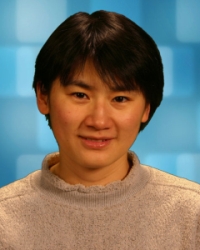Present computer chips demonstrate astounding transistor arrays of over 2.5 billion. However, this number can be increased further with the help of nanotechnologies, which may enable the fabrication of nanotransistors from different materials, including carbon nanotubes, silicon and even larger molecules.
 Wenjing Rao, Assistant Professor of electrical and computer engineering at University of Illinois at Chicago
Wenjing Rao, Assistant Professor of electrical and computer engineering at University of Illinois at Chicago
Wenjing Rao, an assistant professor of electrical and computer engineering at University of Illinois at Chicago, will study the reliability of these future nanoelectronics utilizing a five-year Early Faculty Career award worth $450,000, granted by the National Science Foundation.
Rao informed that future nanotransistors may face a number of issues such as defects and faults and may prove unsuitable for traditional applications such as desktop computers. However, nanoelectronics-based systems might be helpful for new applications such as sensors and embedded systems. As part of the NSF Career Award, Rao will study the capabilities, applications, and theoretical limits of nanotransistor chips.
Rao will explore potential methods of testing and diagnosing issues associated with nanotransistors and identify the ways of using redundant systems as a protection measure for faults.
She stated that computer engineers are raising several questions pertaining to electronic nanosystems so that design and production principles can be set up to ensure the reliability of new products utilizing the systems. The attempt is to find the limit from an engineering point of view to get answers for what can be done, what is not possible and what is expensive.
Rao's NSF Career Award will also be utilized to encourage doctoral students helping in her work, and to design a new course on the subject for both undergraduate and graduate students.